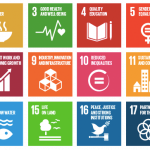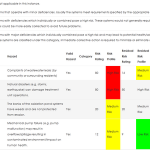Ensuring Sustainable Rural Communities
A CSIR-led multi-disciplinary team is aiming to find an Effective Rural Community Integrated Sustainable Development Implementation Model. The study is currently being conducted in the Eastern Cape study area of the Bulungula community. Emanti is facilitating project team communication with the community and local authorities in order to improve the community’s understanding of water quality, protection of water sources, training members of the community on the application of available water technologies to improve the quality of domestic water and the promotion of community ownership of responsibility for providing for safe water requirements. The project aims to equip the community with the ability to treat currently available water sources in such a way that the water no longer poses a health risk (in the recent past water quality related child sicknesses and deaths have occurred in the area).
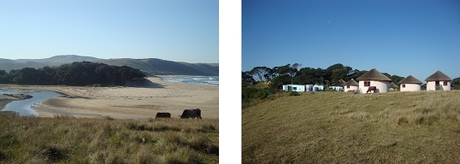
The project focus is the identification of appropriate technologies, testing of the acceptability of these technologies within the community, raising awareness and knowledge transfer within the community on health protection and enterprise development. The work revolves around investigations on current practices (both successful and failing) by means of consulting the community at workshops and through individual interviews. Three different study communities in the Eastern Cape, Northern Cape and Limpopo will be investigated.
In the early 19th century, the Bulungula area was home to both the Xhosa and Scottish people who lived together in harmony. The Scots were survivors from some of the many shipwrecks that happened in the area. These many shipwrecks led to the area being called the Wildcoast. The unusual harmony of the Xhosa and foreign Scots led to the settlement being called Ebelungwini, the place of white people. To date many local people who are descendants of that old community have a clan name of “Abelungu”, literally meaning that they belong to a white people. It is said that ”history repeats itself”. About four years ago a family of white family came to settle in this beautiful area. They live in the village and have become the catalyst for development of this community. Tourism is encouraged and a great number of tourists from every corner of the globe now visit the Bulungula. Many of these tourists donate funds for development of this community and an NGO has been founded to facilitate development of the area with visible positive results.
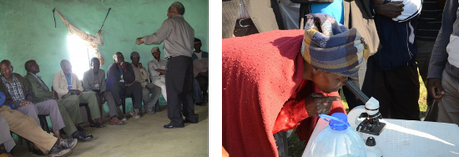
Roads to the area are in poor condition making access very difficult, unnecessarily time consuming and costly on vehicle maintenance. During 2011 a strip of road was built over very difficult terrain allowing tourist to have access to the coast and Guest Lodge. Profits are returned to the community and these have been used to build a school, equip boreholes with pumps and storage tanks and fence water springs. The NGO is relentless in its efforts to get both government and non-governmental agencies to support development of the area. As a result of their efforts, the Amathole District Municipality has recently responded by planning and implementing a water supply project which will allow for a conventional piped water supply to the area within two to three years. Four new boreholes, using donations from private support, have also been drilled. The CSIR project is investigating the utilization of these boreholes and other water sources.
To date two community workshops have been conducted in the area. The project team has been able to obtain valuable information on water sources and water usage from the community, raise awareness on health issues in relation to water use, and, in return, transfer knowledge relating to caring for water sources and using their limited resources to ensure that drinking water is safe. At the second workshop the community was provided with Tulip filters to use in home water treatment. The filters are said to be 99.9% effective in removing micro-organisms in water. The community has been trained to use them and their effectiveness in the hands of the community will be monitored over a period of time.
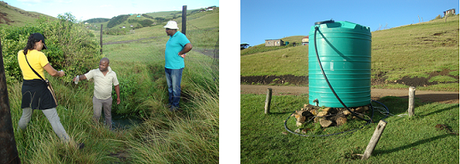
The CSIR has been monitoring the quality of water from the currently utilised water sources for some time. The results will be forwarded to Emanti Management for recommendations on appropriate and effective water treatment methods. The main concern at present is the removal of iron and manganese from the water. Emanti will also provide recommendations to improve access to water from the springs and elimination/prevention of pollution of the water at these points.
Emanti is very excited to be part of this worthwhile project as it is aligned to the vision of Emanti as the leader in bringing solutions to speed up the process of enabling community’s access to safe drinking water.





